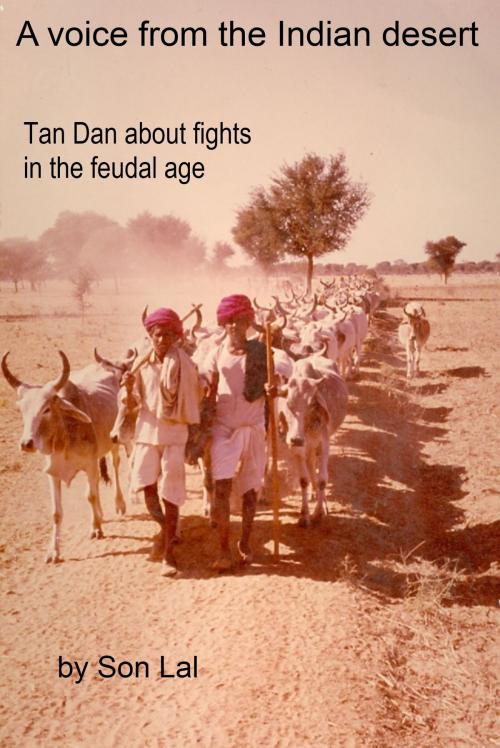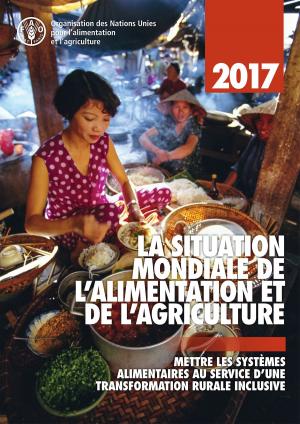A Voice Of The Indian Desert
Nonfiction, History, Asian, India, Social & Cultural Studies, Social Science| Author: | Son Lal | ISBN: | 9781301685172 |
| Publisher: | Son Lal | Publication: | May 28, 2013 |
| Imprint: | Smashwords Edition | Language: | English |
| Author: | Son Lal |
| ISBN: | 9781301685172 |
| Publisher: | Son Lal |
| Publication: | May 28, 2013 |
| Imprint: | Smashwords Edition |
| Language: | English |
Tan Dan about fights in the feudal age, and the liberation of the feudal serfs in the 1950s. Narrations from his native village. Detha cattlebreeders had clashes with feudal lords, who did not want to accept any rivalry to their supremacy. Untouchable Hindus worked as humiliated serfs. Among them Harji, who was beaten so much that he died. His hair was too long. Eventually the suppressed farmers became landowners instead of their former masters.
The book is a personal testimony of a remote feudal world experienced from inside. Tan Dan explains the background of feudal traditions, which influenced the life of people long after the feudal rule formally had ended. He tells about the reasons for fights and conflicts among powerful villagers. Tan Dan saw how feudal subjects had become so used to social suppression, that they lived in total meekness and silence. Those very few who did not follow compulsory feudal rules suffered severely like Harji. He dared to let his hair grow,although it was forbidden.
Tan Dan experienced robber bands with bonds to the feudal elite. They were a terror in the area, until the new farmer class managed to get the government to stop them. Hence, the scene changed when suppressed farmers became landowners in the 1950s and could form a powerful social class with a say in Rajasthan politics.
This is a book about violence and suppression. Feudal village fights as a way of life. Customs and traditions imposed on large groups to make them submissive. Social inequality as a social order. The book is also about the change towards a better life for subjugated groups, after generations of sufferings.
Tan Dan has since childhood been a close friend of many suppressed villagers. Here is his narration from a small traditional village, that in 1950 was surrounded by long stretches of sandy bushy grassland, later on converted into overexploited farm land. Far away in colourful Rajasthan with a friendly people, a beautiful desert landscape and a challenging history.
Tan Dan about fights in the feudal age, and the liberation of the feudal serfs in the 1950s. Narrations from his native village. Detha cattlebreeders had clashes with feudal lords, who did not want to accept any rivalry to their supremacy. Untouchable Hindus worked as humiliated serfs. Among them Harji, who was beaten so much that he died. His hair was too long. Eventually the suppressed farmers became landowners instead of their former masters.
The book is a personal testimony of a remote feudal world experienced from inside. Tan Dan explains the background of feudal traditions, which influenced the life of people long after the feudal rule formally had ended. He tells about the reasons for fights and conflicts among powerful villagers. Tan Dan saw how feudal subjects had become so used to social suppression, that they lived in total meekness and silence. Those very few who did not follow compulsory feudal rules suffered severely like Harji. He dared to let his hair grow,although it was forbidden.
Tan Dan experienced robber bands with bonds to the feudal elite. They were a terror in the area, until the new farmer class managed to get the government to stop them. Hence, the scene changed when suppressed farmers became landowners in the 1950s and could form a powerful social class with a say in Rajasthan politics.
This is a book about violence and suppression. Feudal village fights as a way of life. Customs and traditions imposed on large groups to make them submissive. Social inequality as a social order. The book is also about the change towards a better life for subjugated groups, after generations of sufferings.
Tan Dan has since childhood been a close friend of many suppressed villagers. Here is his narration from a small traditional village, that in 1950 was surrounded by long stretches of sandy bushy grassland, later on converted into overexploited farm land. Far away in colourful Rajasthan with a friendly people, a beautiful desert landscape and a challenging history.















